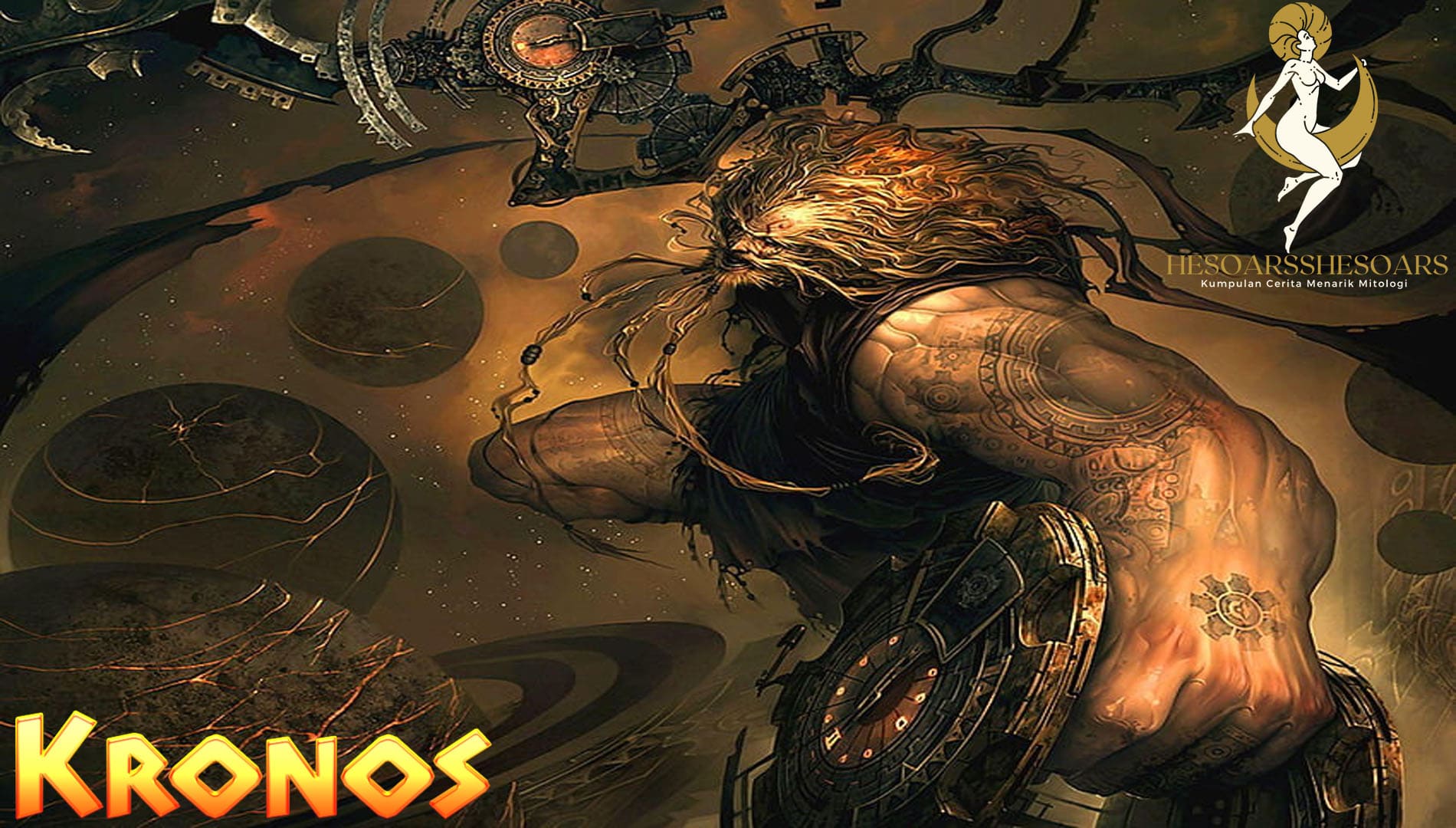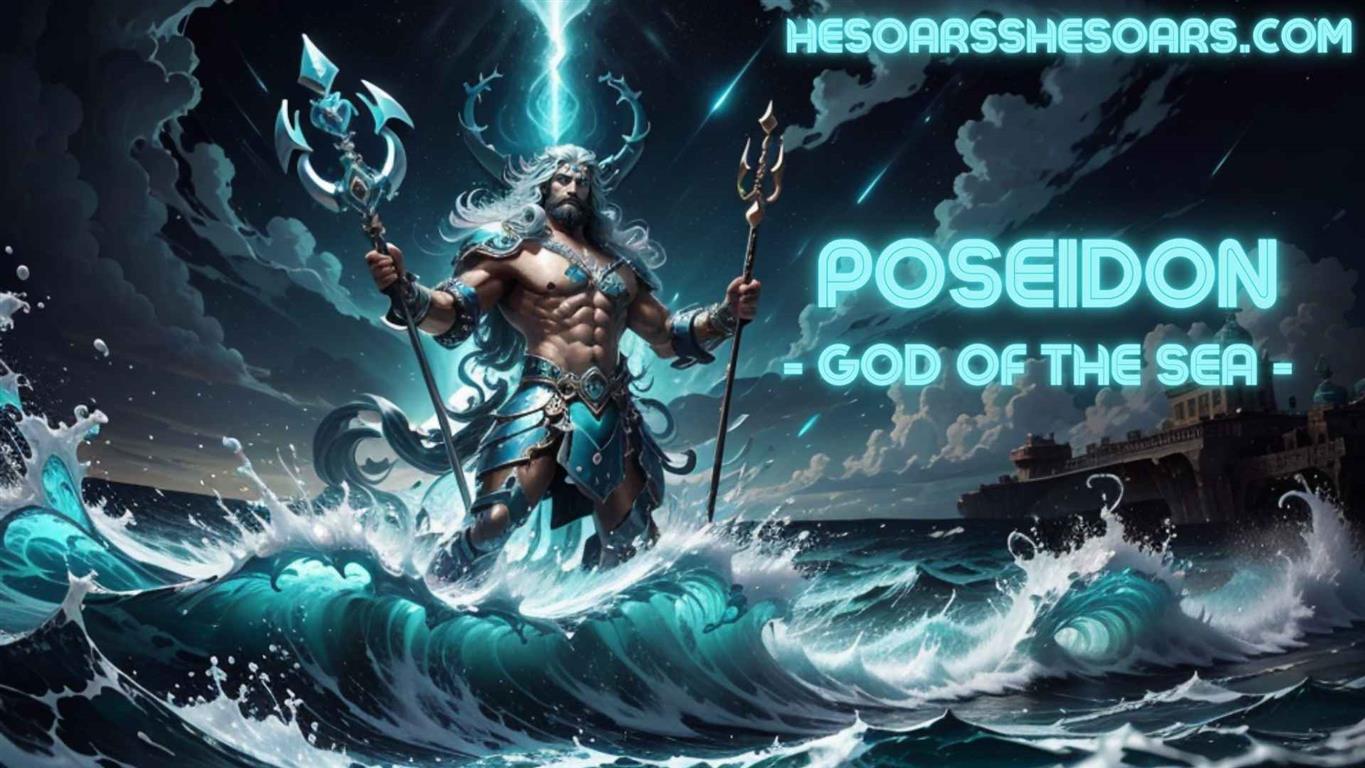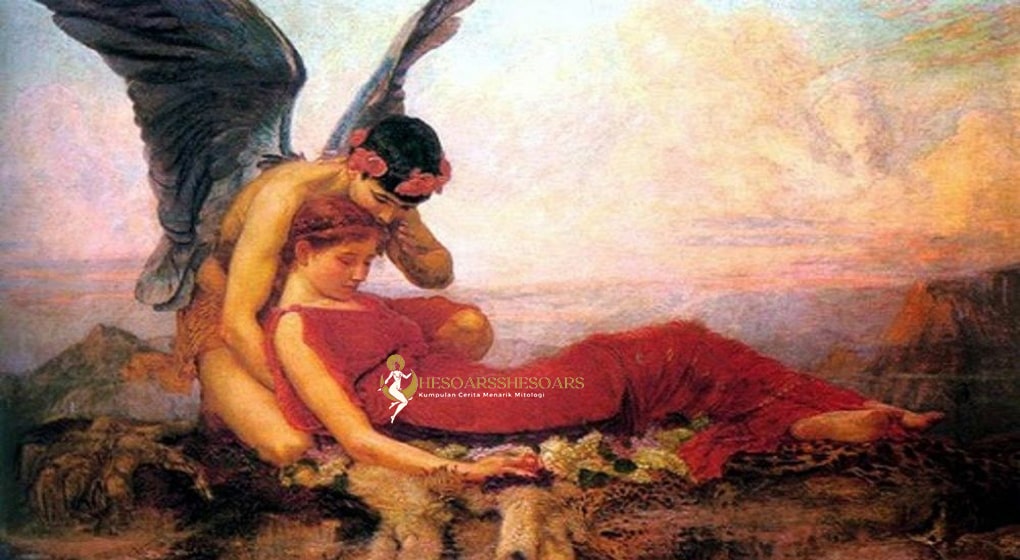Introduction
Kronos, in Greek mythology, is one of the most famous Titans, especially because of his role as the father of Zeus, the supreme god of Olympus. Kronos himself was the son of Uranus, the god of the sky, and Gaia, the god of the earth. The story is rich with symbolism and provides deep insight into the culture and beliefs of Ancient Greece.
The Origins of Kronos
Kronos was one of the twelve Titans, the first children of Gaia and Uranus. According to mythology, Uranus hated his children and hid them in the earth (Gaia’s womb). Gaia, in pain and anger, created a scythe and asked her children to use it against Uranus. Kronos, being the bravest, finally accepted this task and managed to cut off Uranus’ genitals, throwing them into the sea.
Reign of Kronos
After overthrowing Uranus, he became ruler of heaven and earth. He is married to his sister, Rhea, and they have several children. However, there is a prophecy that states that him will be overthrown by his own son, just as he overthrew his father. To prevent this, he ate his children as soon as they were born.
The Ascension of Zeus and the Fall of Kronos
Rhea, saddened by the loss of her children, decided to save Zeus, her youngest child. He hid Zeus in a cave in Crete and gave him a stone wrapped in cloth, which he swallowed, thinking it was Zeus. Zeus was then raised in secret and, as an adult, he rebelled against Kronos. With the help of his allies, Zeus managed to defeat him and the other Titans, imprisoning them in Tartarus.
Kronos’ Legacy
Despite being a terrifying figure and often associated with time and destruction, Kronos has an important role in Greek mythology. The story of Kronos also emphasizes the themes of generational replacement and the inevitability of fate.
He, although often seen as an antagonist, is an important character in Greek mythology who represents power, ambition, and destiny. The story explores complex themes such as power, betrayal, and the cycle of life. Which continue to influence culture and literature today.
The Influence of Kronos in Culture and Art
Kronos was not only important in a mythological context but also had a wide influence in various aspects of culture and art. From literary works to visual arts, the symbolism and stories of him have provided inspiration for many works.
In Literature
In literature, Kronos is often introduced as a metaphor for the inevitability of time and generational change. He also appears as a symbol of tyrannical power and the fear of immortality. Several works of literature, both ancient and modern, use the figure of him to explore themes such as father-son conflict, the cycles of the universe, and the duality of creation and destruction.
Visual Arts
In the visual arts, representations of Kronos range from classical statues to modern paintings. He is often depicted in key moments of his mythology, such as cutting Uranus or eating his children. This image is not only historically important but also depicts deep emotions and inner conflict, making him a complex and interesting subject in art.
Influence in Popular Culture
Kronos has also found his way into popular culture, appearing in various forms ranging from films to television to video games. In this medium, the character of him is often adapted and reinterpreted, sometimes as an evil figure and sometimes as a more nuanced character.
Kronos Symbolism
Kronos is often associated with the symbolism of time and eternity. In many works, he is represented with an hourglass or crescent, reminiscent of the way he overthrew Uranus. These symbols reflect the unbroken cycle of time, power, and the irreversibility of fate.
Kronos in Philosophy and Psychology
In philosophy and psychology, Kronos is often used as a metaphor to explore concepts such as fate, power, and inner conflict. He can also be seen as a representation of human anxieties regarding time and death, as well as the complex relationship between creator and creation.
Conclusion
Kronos, although often depicted as a sinister figure in Greek mythology, has provided a rich and varied legacy in many areas of culture. From literature to visual art and popular culture, he remains a fascinating and layered figure, inviting diverse reflection and interpretation. As a symbol of time, change, and fate, he continues to influence and inspire the creation of works of culture and art to this day.




